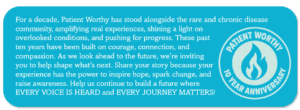Sixty-five-year-old JoEllen Zembruski-Ruple had been a cancer patient at the revered Sloan Kettering center in January of this year. Her treatment for squamous cell carcinoma began with three chemotherapy pills. According to JoEllen’s family no one realized at the time that the drug would eventually kill her as it has been known to kill almost 1,000 people in the U.S. every year.
As reported by MEDPAGETODAY.com, JoEllen developed swelling around the eyes and mouth sores requiring her to be examined in the center’s urgent care unit. The diagnosis was an oral yeast infection. JoEllen was discharged and sent home. JoEllen’s sister reported events to NBC News, explaining that in the two days that followed JoEllen developed severe vomiting and diarrhea. JoEllen was admitted to the hospital. Her diagnosis was “enzyme deficiency”. This time, however, JoEllen, who had worked as a patient advocate for various medical associations, would not return home.
Her condition worsened rapidly. She was covered with bruises and unable to swallow. JoEllen entered hospice care and died on March 25th.
JoEllen’s death was caused by a drug that was supposed to prolong her life.
A Final Diagnosis
JoEllen was deficient in an enzyme that breaks down capecitabine, the chemotherapy drug that was administered to her. It is to be noted that approximately 1,000 people in the U.S. die every year due to the pill’s toxic effects or to a similar drug, the IV drug fluorouracil (5-FU).
The Cost of a Test vs The Cost of a Life
There are tests for deficiency. Depending upon the test results the dosage can be lowered, or the drugs can be switched if the patient harbors a genetic variant that creates a risk. The antidote was FDA approved in 2015. It is not only expensive, but it must be given within four days of the initial chemotherapy treatment. Some of the more recently approved cancer drugs may include a companion diagnostic that will help determine if the drug is compatible to a patient’s genetics.
But 5-FU was introduced in 1962. It sells for approximately $17 per dose. The availability of toxic tests was not made known to JoEllen’s family. Although the cost would be hundreds of dollars out of pocket, her family claims that they would have paid for it, but they were never given that opportunity.
Dr. Alan Venook, a cancer specialist at California University-San Francisco stated that it is only recently doctors have understood which gene variants present a danger and which patients are susceptible. By the time the doctors told JoEllen that she had the deficiency, she had been on the drug for eight days. Family members said that if they had been told about the test and the fatal risk of the chemo they would have ordered the test.
On January 24 of this year, a warning was issued about the enzyme deficiency urging providers to inform patients of the risks involved with 5-FU and capecitabine.
Six days after JoEllen’s death, March 31, 2025, an FDA panel took the first step by recommending that doctors test patients for deficiencies. Yet there was no specific test recommended with the panel citing a lack of data relating to dose adjustments. Kerin Milesky, a Brewster Massachusetts health official, stated that the new guidance fell short of the recommendation her advocacy group was working towards, but the group was still appreciative of the “major step” towards their goal. Kerin’s 73-year-old husband died two years earlier after taking one treatment of capecitabine.
Drug regulators in Europe began to urge oncologists to conduct tests to identify the deficiency in May 2020. If patients had potentially risky genetics, they would begin with a half-dose of the drug. If no major toxicity occurred, the dose would be increased.
A Life was Saved
Forty-two-year-old Emily Alimonti, an upstate New York biotech salesperson, notified the oncologist at Sloan Kettering that she would not begin treatment with capecitabine unless her doctors agreed to deficiency testing. Results of the test indicated that Emily had a copy of a high-risk gene variant. Emily therefore began treatment on a lower dose of the drug due to low white blood cell counts.
Approximately 300,000 individuals in the U.S. are treated with either 5-FU or capecitabine each year. These two drugs remain powerful tools, yet the U.S. regulators are almost powerless to control their use. In March 2025 the price of the tests fell below $300, and results of the tests were being released in three days.
Although a full scan would obviously give more information it would add time and expense, and the answers may still be clouded according to Dr. Venook. The doctor also worries that if patients are started on lower doses it may result in a lower number of cures.
Mayo Clinic’s Recommendation
If a patient has a suspect gene variant, the Mayo Clinic recommends that the patient begin treatment with a half dose. Following that guidance, most patients may begin treatment almost immediately. This statement was attributed to Daniel Hertz, clinical pharmacologist at Michigan University. Dr. Venook stated that there are cases brought forth by relatives of deceased patients who sued hospitals and accepted settlements.
JoEllen was featured in video tributes as being helpful, kind, and creative with a beautiful sense of style.




